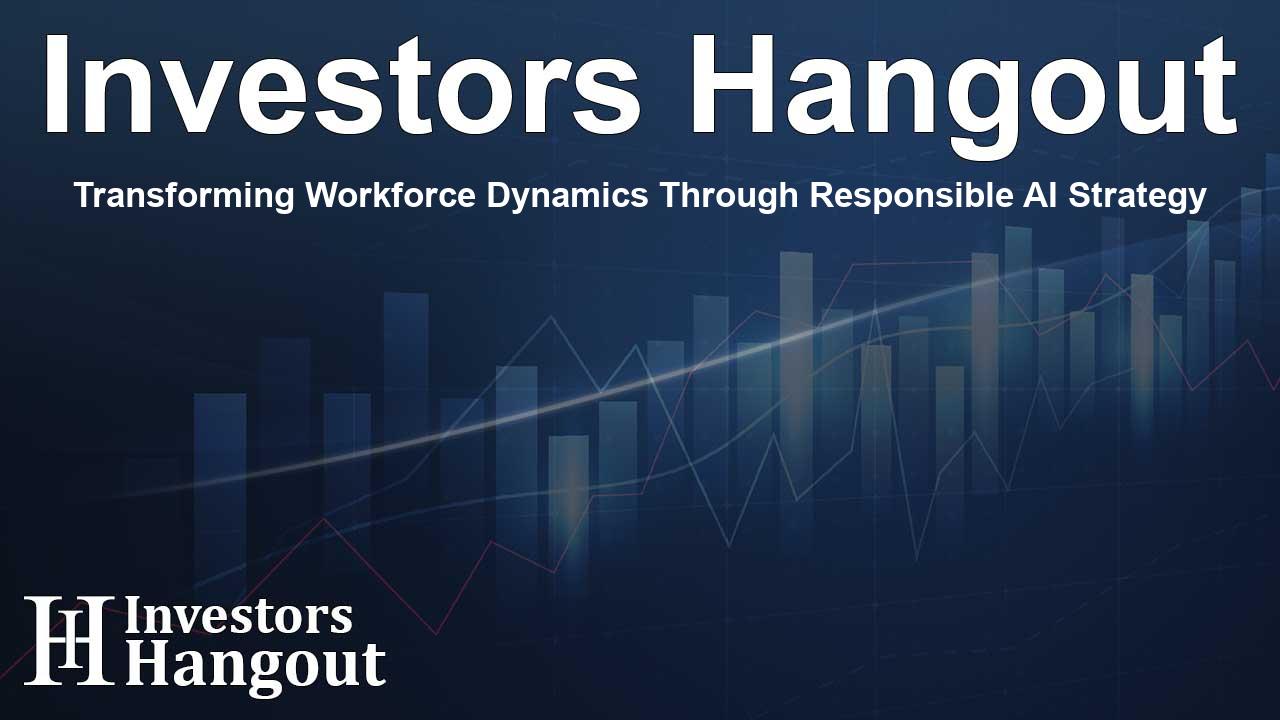Transforming Workforce Dynamics Through Responsible AI Strategy

Unveiling the Realities of AI Adoption
AI consultant Khullani Abdullahi has shed light on the chaotic landscape many organizations navigate in the realm of AI adoption. Despite significant investments in artificial intelligence, many businesses seem to be proceeding without clear guidance. This blind rush towards technology could ultimately lead to confusion and inefficiency, leaving companies vulnerable while their competitors thrive.
The Financial Landscape of AI Investment
According to reports, U.S. private AI investments skyrocketed recently, totaling $109.1 billion. This figure overshadows investments from other leading nations by sizable margins, suggesting that the U.S. leads the charge in AI potential. However, with only about a third of businesses actively implementing AI strategies, Abdullahi emphasizes that a substantial number of organizations are yet to harness the full capabilities of these technologies. This begs a critical question: Is the current rush toward AI helping or harming our workforce?
Understanding AI Chaos in Enterprises
Abdullahi identifies a concerning trend in which many companies adopt AI technology without a cohesive strategy or governance in place. The tarnished notion of "shadow AI" becomes apparent as staff members turn to unmonitored tools, potentially jeopardizing proprietary data. She articulates the fear that permeates many discussions among professionals. Executives often express a reluctance to embrace AI because they believe their work is somehow insulated from its effects. However, they may actually be cautious due to a lack of understanding and clarity surrounding the technology.
The Future of Work: Consequences of Inaction
Looking towards the future, Abdullahi issues a sobering prediction. She believes that a significant portion of white-collar jobs may become obsolete in the next decade—not solely due to complete automation but because AI will likely eliminate a massive number of routine tasks. The shift toward AI means that only roles requiring creativity and strategic thinking will remain, paving the way for a new era in the workplace.
Strategizing for AI Implementation
In light of these concerns, Abdullahi proposes an organized approach to AI deployment that emphasizes thorough training, effective governance, and a focus on long-term benefits. Her consultancy, Techné AI, assists companies in strategizing at all levels, from the foundation of employee training to the development of comprehensive AI governance structures.
Preparing for the AI Future
Exemplifying a proactive leadership stance, Abdullahi suggests that leaders openly communicate with their teams about AI implementations. This includes sharing a clear strategy and the educational resources available to help employees adapt. She reassures workers that while job security may be uncertain, the skills they develop during this transformation will empower them to navigate future opportunities proficiently.
AI Centers of Excellence
Techné AI's methodology promotes the establishment of AI Centers of Excellence within organizations. These centers function as hubs for testing and deploying AI tools, ensuring proper governance while also prioritizing the understanding of their significance. The dual consulting approach focuses not only on aiding enterprises but also helping AI providers tailor their offerings to meet corporate needs effectively.
Conclusion: Moving Beyond the Hype
The aim of this strategic shift is clear: to move past the initial excitement surrounding AI and create sustainable advantages for businesses. Building a strategic framework for AI technologies allows organizations to foster resilience and seize opportunities amid the evolving market.
Frequently Asked Questions
What is the main focus of Khullani Abdullahi's consultancy?
Khullani Abdullahi's consultancy, Techné AI, focuses on helping organizations adopt and govern AI technologies responsibly and effectively.
Why is there confusion surrounding AI adoption in businesses?
Many organizations are rushing to adopt AI without a clear roadmap, resulting in chaos and lack of direction.
What does Abdullahi predict for the future of white-collar jobs?
She predicts that a significant percentage of white-collar jobs may become redundant due to AI, primarily affecting routine tasks.
How can organizations prepare their workforce for AI?
According to Abdullahi, organizations should implement structured training, comprehensive communication, and develop clear AI strategies.
What role do AI Centers of Excellence play?
AI Centers of Excellence facilitate the testing and deployment of AI tools, ensuring proper governance and strategic implementation within companies.
About The Author
Contact Olivia Taylor privately here. Or send an email with ATTN: Olivia Taylor as the subject to contact@investorshangout.com.
About Investors Hangout
Investors Hangout is a leading online stock forum for financial discussion and learning, offering a wide range of free tools and resources. It draws in traders of all levels, who exchange market knowledge, investigate trading tactics, and keep an eye on industry developments in real time. Featuring financial articles, stock message boards, quotes, charts, company profiles, and live news updates. Through cooperative learning and a wealth of informational resources, it helps users from novices creating their first portfolios to experts honing their techniques. Join Investors Hangout today: https://investorshangout.com/
The content of this article is based on factual, publicly available information and does not represent legal, financial, or investment advice. Investors Hangout does not offer financial advice, and the author is not a licensed financial advisor. Consult a qualified advisor before making any financial or investment decisions based on this article. This article should not be considered advice to purchase, sell, or hold any securities or other investments. If any of the material provided here is inaccurate, please contact us for corrections.
